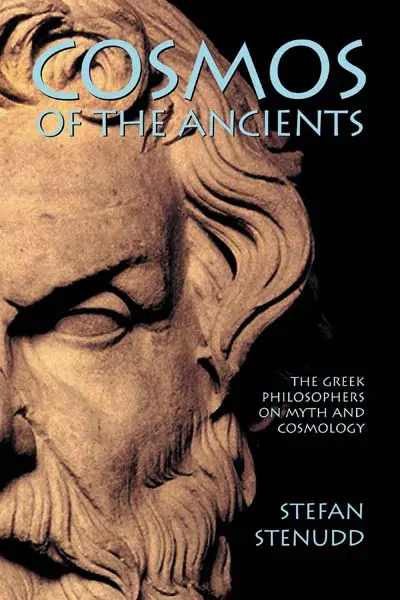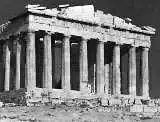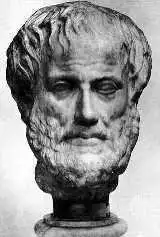The book

Cosmos of the Ancients
The Greek Philosophers on Myth and Cosmology,
by Stefan Stenudd
The Greek philosophers lived in a time when the gods and the myths about them were very much alive, and there was no scientific evidence dismissing them. This book explores to what extent the Greeks were able to question their own mythology. This is done by examining the cosmology of their philosophers, and what roles they allowed therein for the gods.
Stefan Stenudd is a Swedish author and historian of ideas, who studies the patterns of thought in creation myths amd ancient cosmology.
How to get the book
If you want to buy the book, you can do so at most Internet bookstores. Click the image below to see the book at Amazon (paid link). The link takes you to your local Amazon store (or to Amazon.com).


Click the header to visit the book's Facebook page.
Table of Contents
Here is the book's table of contents:
Foreword 7
Introduction 9
Living Myth 9
Reality 11
The Greeks 14
God 16
Selection 17
Sources 18
Law 21
Homer and Hesiod 26
Drama and Poetry 32
Categories of Cosmology 41
Greek Philosophers Categorized 47
Some Conclusions 49
The Philosophers 53
Thales 54
Anaximander 56
Anaximenes 59
Pythagoras 61
Pherecydes of Syros 64
Xenophanes 67
Theagenes 69
Hecataeus 71
Heraclitus 73
Parmenides 79
Anaxagoras 83
Empedocles 86
Herodotus 90
Gorgias 93
Melissus 95
Protagoras 98
Philolaus 101
Leucippus 104
Democritus 106
Prodicus of Ceos 109
Antisthenes 112
Diagoras of Melos 114
Plato 116
Aristotle 125
Epicurus 128
Zeno of Citium 132
Euhemerus 134
Appendix 137
Schools of Greek Philosophy 138
List of Greek Philosophers 142
About the illustrations 144
Literature 146
Foreword of the Book
Although this book is about philosophers, its objective is not philosophy. I am mainly interested in the patterns of thought, as they appear in religion and its myths. So, I use the Greek philosophers to explore how the human mind
relates to religious beliefs: does it really believe in them?
Modern society is quite secular, and many among us have little faith in whatever religion our society supports. Still, we take for granted that in past cultures the population was homogenous in a strong belief in their gods and the myths about them. We tend to make the same assumption about any society outside of our own, and any religion except the one of our own tradition.
That is hasty, probably also prejudiced. Why would we not start by expecting other cultures to be able the same doubts?
The Greek philosophers lived in a society that cherished the myths about its gods, celebrated them and erected
temples to their honor. It is taken for granted that the Greeks of Antiquity believed in their gods and the myths about
them, as if their minds were unable of anything else. Now, the minds of the philosophers are accessible to us in the form of their words saved for posterity. Their thoughts can be traced, as for how they related to the gods worshiped by the society surrounding them.
Those were excellent minds, of course. Maybe they had little in common with the thoughts going through the heads
of the average citizens at that time. Still, there is a limit to how much different they could have been. What was conceivable to the philosophers must at least have been perceivable to other Greeks. Otherwise their words would neither
have been understood nor recorded. And they were no alien beings.
So, what the Greek philosophers were thinking, was possible for anyone in their society to think. If they doubted
the existence of the gods or the accuracy of the myths, then that doubt was recognizable to other Greeks, and quite possibly present in their minds as well.
As can be seen in this book, the doubt was definitely there just about everywhere.
That is reason enough to start by assuming the same doubt in every culture and every era. We have our religions, our gods and myths. Even though we may cherish and praise them, we also have our doubts about them. I would say that it's not a question of whether the human mind is capable of doubt the question is really if we are at all able not to doubt. I doubt it.
Samples
Here are two short chapters from the book, as Acrobat PDF files in computer screen resolution (72 DPI):
Cosmos of the Ancients
The Greek Philosophers on Myth and Cosmology
by Stefan Stenudd
Arriba Publ., 2007, 2011, 2015
Paperback, 148 pages
ISBN 978-1-5172-5091-1
Printed by CreateSpace

The Greek Philosophers

Aristotle
My Other Websites
Myths in general and myths of creation in particular.
The wisdom of Taoism and the
Tao Te Ching, its ancient source.
An encyclopedia of life energy concepts around the world.
Qi (also spelled
chi or
ki) explained, with exercises to increase it.
The ancient Chinese system of divination and free online reading.
Tarot card meanings in divination and a free online spread.
The complete horoscope chart and how to read it.

Stefan Stenudd
About me
I'm a Swedish author of fiction and non-fiction books in both English and Swedish. I'm also an artist, a historian of ideas, and a 7 dan Aikikai Shihan aikido instructor. Click the header to read my full bio.

